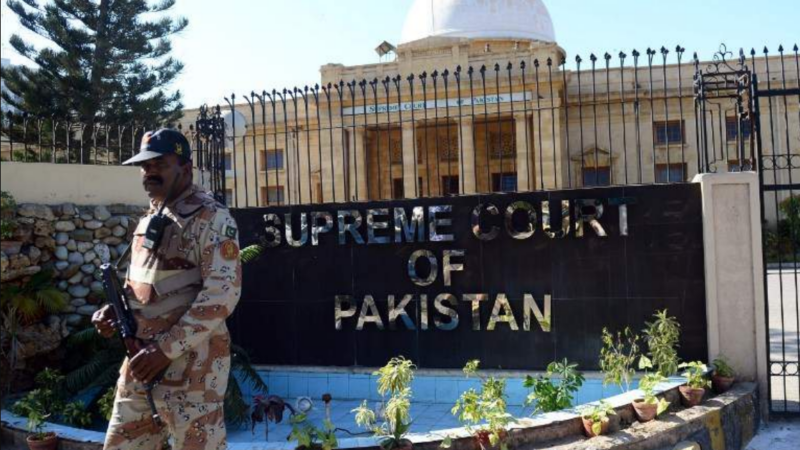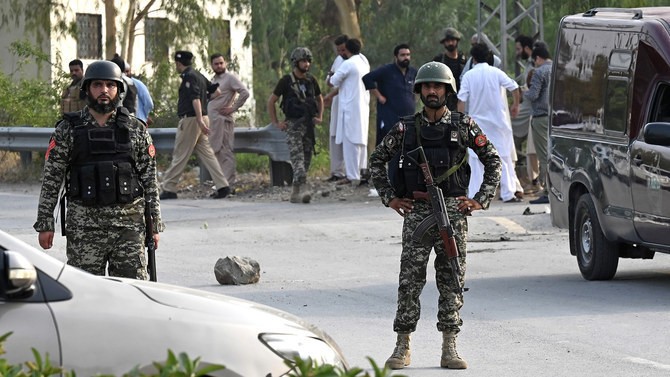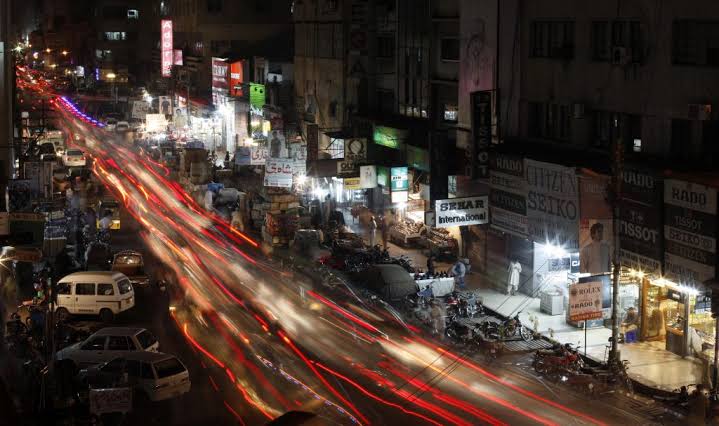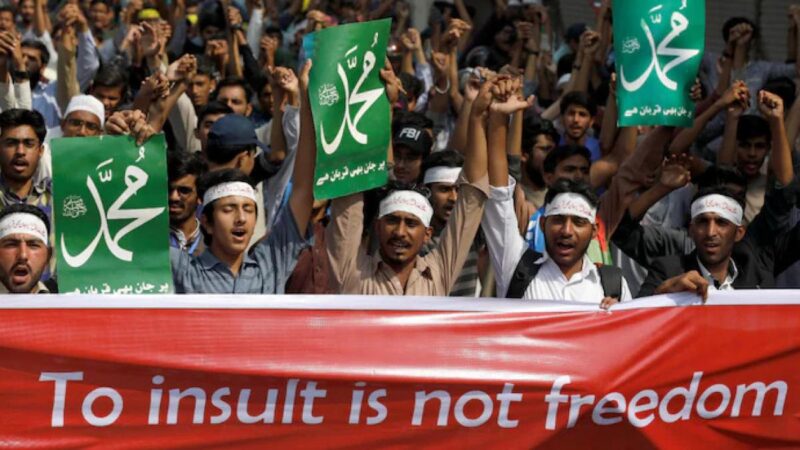Can the Saudi-Iran agreement stabilize the Middle East and start a chain reaction?
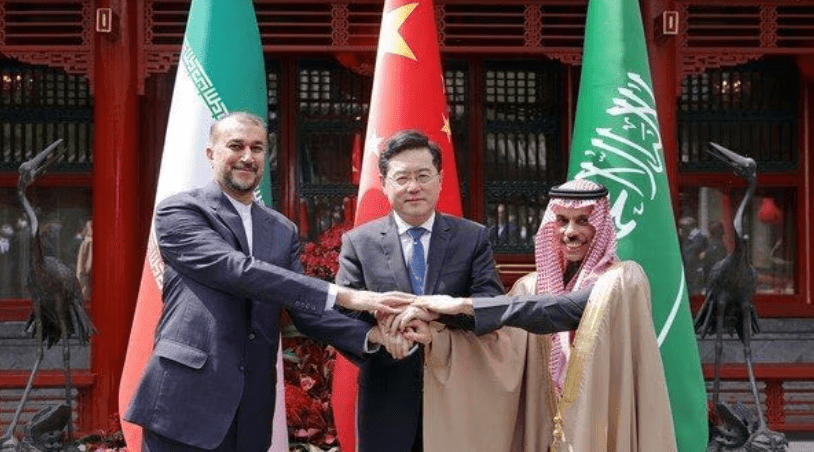
The foreign ministers of Saudi Arabia and Iran, Prince Faisal bin Farhan Al Saud and Hossein Amir-Abdollahian, respectively, met last Thursday in Beijing and signed a pact to reestablish diplomatic ties and put an end to hostilities as their first official meeting in seven years.
Prince Faisal bin Farhan Al Saud and Hossein Amir-Abdollahian, the foreign ministers of Saudi Arabia and Iran, met for the first time and addressed a number of crucial issues relating to the reestablishment of diplomatic ties between their countries.
Media sources claim that the recent deal between Saudi Arabia and Iran, two nations with a long history of antagonism, that China helped to arrange, has the potential to have repercussions throughout the whole Middle East.
Other countries in the area, like Yemen, Syria, Lebanon, and Iraq, where Saudi Arabia and Iran have traditionally backed opposite factions, may benefit if tensions between these two countries are reduced.
According to ANI, this agreement may significantly contribute to regional stabilization and the advancement of increased international cooperation and diplomacy.
One major step toward expanding China’s diplomatic and strategic influence in the Middle East is seen to be its participation in the Saudi-Iran accord.
The United States, which is seeing a fall in its own economic and soft power in the area, is concerned about China’s expanding influence in the region.
Hopes have been raised that the protracted battle in Yemen may finally come to an end as a result of the recent diplomatic success between Saudi Arabia and Iran. Iran’s oppositional backing for the Houthi rebels, in contrast to Saudi Arabia’s support for the internationally recognized government, has escalated this war.
Over 233,000 people have died as a consequence of the fighting, and five million people now face a starvation danger. Over a million individuals have also been impacted by a cholera epidemic.
A truce in Yemen was mediated by the UN in 2022, and it has mostly been adhered to by the warring parties.
The truce is anticipated to last permanently after the recent deal between Saudi Arabia and Iran, in which both countries agreed to stop taking part in the fight in Yemen.
The Saudi government, which has been battling Houthi rebel missile and drone strikes on its oil sites, is somewhat relieved by the new diplomatic accord between Saudi Arabia and Iran.
The administration anticipates that once the battle in Yemen is done, these assaults will cease and it won’t be necessary to spend billions of dollars on sophisticated air defense systems.
Iran, which has been cut off from the rest of the world for many years, has achieved a great deal with the recent diplomatic success between Saudi Arabia and Iran.
A significant diplomatic achievement for Iran was the restoration of diplomatic ties with Saudi Arabia, one of its primary Middle Eastern opponents, without any previous agreement on its nuclear program.
The agreement “for Iran represents a successful effort of trying to push back against regional isolation without major changes to its policies, which adversaries like Saudi Arabia had previously been demanding,” notes Hussein Ibish of the Arab Gulf States Institute in Washington.
The diplomatic success between Saudi Arabia and Iran will probably have a big influence on Syria’s position. Saudi Arabia has long been a significant ally of the opposition in Syria, whilst Iran has supported Bashar al-Assad’s government. Several Syrian provinces are still under the hands of pro-Iranian militants.
Saudi Arabia’s shift in Syria policy may be traced to Russia’s military assistance to the Assad administration, which made it evident that the regime would not be overthrown. Saudi Arabia ceased funding the rebels as a consequence, and the country is now talking about Syria’s potential membership in the Arab League.
An influential force in Lebanon for many years, the pro-Iranian armed organization Hezbollah has a substantial impact on the military and political affairs of the nation.
It has developed into a hybrid terrorist group that sometimes fights Israel while also offering social aid to thousands of residents of Lebanon who are suffering from the country’s terrible economic situation.
Hezbollah and a coalition that supports Saudi Arabia have had a dominant position in Lebanese politics for years.
Since many months, Lebanon has been experiencing an economic crisis with no sign of an end in sight.
Political groups on opposing sides have been unable to come to agreements on the nation’s most pressing concerns, leaving the country without a president and a fully functional government.
Political stagnation has existed in Lebanon for a number of months, with no end in sight. The recent resumption of diplomatic ties between Saudi Arabia and Iran has given rise to optimism that this situation would alter.
The Lebanese Parliament’s Speaker, Nabih Berri, described the event as “historic” and urged the country’s leaders to take notice and swiftly choose a new leader.
Following the 2003 US-led invasion of Iraq and the overthrow of Saddam Hussein’s regime, a number of militias with ties to Tehran joined the newly formed Iraqi Army. When the Islamic State pushed into northern Iraq in 2014, Iran helped the Iraqi government with technical matters, sent soldiers to combat ISIL, and even supplied the Peshmerga forces with weaponry.
Iraq and Saudi Arabia’s ties saw a minor improvement in 2020, and the two nations reopened a border crossing. Relationships between Tehran, Riyadh, and Baghdad are anticipated to significantly strengthen as a result of the recent accord mediated by China.
The danger of an Iranian assault on Saudi Arabia has decreased as a result of the recent normalization of relations between the two countries. This has removed Riyadh’s strong reason to think about fortifying its connections with Israel.
The United States does not support the Chinese-mediated agreement between Saudi Arabia and Iran because it views it as undermining its broader Middle East policy.
Regarding the Riyadh-Tehran agreement, a State Department spokeswoman said, “Of course, we would welcome that if this dialogue results in concrete action by Iran to curb its destabilizing activities in the region, including the proliferation of dangerous weapons.”
Given the recent restoration of ties between Saudi Arabia and Iran, the US is realizing that it is unlikely that Saudi Arabia and Israel would establish diplomatic relations.

